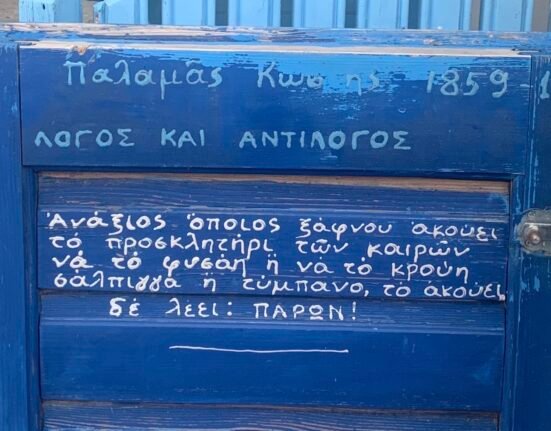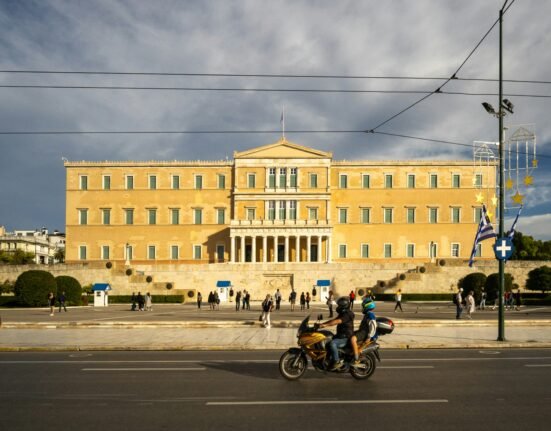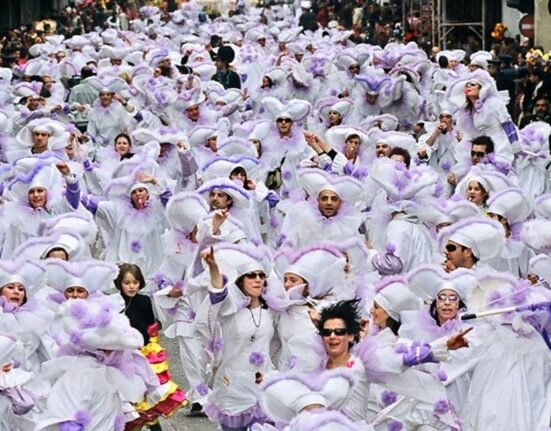Greece honors Saint Nicholas Day, a revered figure in the Christian Orthodox faith, on December 6th each year. Known as the precursor to Santa Claus, Saint Nicholas was a devoted Greek bishop who lived in the 4th century in the Lycian town of Myra, located in present-day Turkey. His life and deeds have inspired countless legends and traditions that continue to shape the way Greece honors St Nicholas Day and Christmas is celebrated in Greece and beyond.
While the familiar image of Santa Claus, characterized by a jolly, white-bearded man in a red suit, became widely popular in the 19th century, the story of Saint Nicholas extends far back into history. This beloved bishop was known for his generosity and compassion, particularly towards the less fortunate. Greece honors St Nicholas Day in remembrance of his most famously associated tale of saving a poor family from despair by secretly providing them with gold coins, which he is said to have thrown down their chimney. This act of kindness not only saved a daughter from a life of slavery but also led to the tradition of gift-giving during the holiday season.
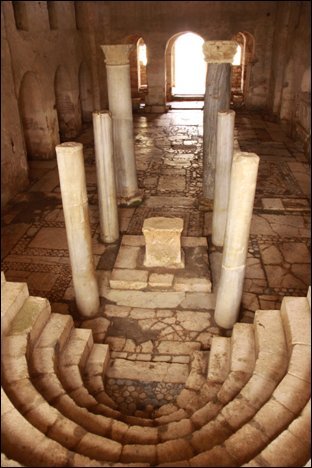
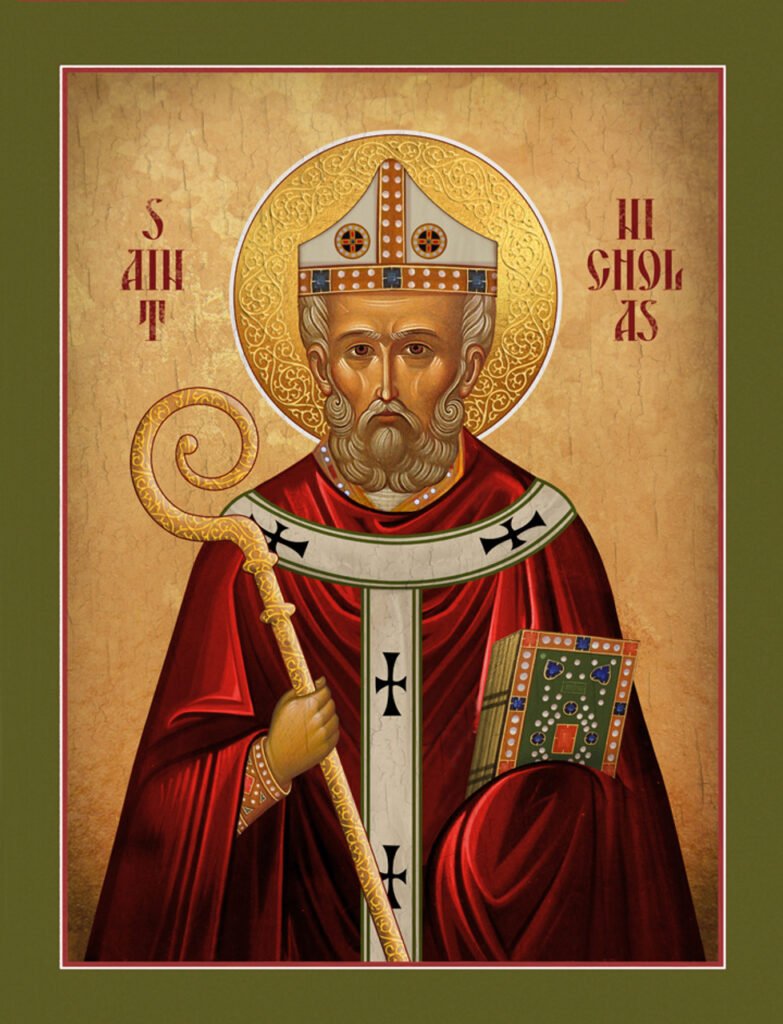
Interestingly, in Greece, the figure who brings gifts to children is not Santa Claus but Agios Vasilis (Saint Basil), who arrives on New Year’s Day. This distinguishes Greek traditions from those of many other nations, where Santa Claus is the central figure of Christmas celebrations. The name “Santa Claus” itself is derived from “Sinterklaas,” a name used by Germanic peoples that is a shortened form of “Saint Nicholas.” The merging of various cultural traditions in Western Europe ultimately led to the creation of the modern Santa Claus we know and love today. Meanwhile, Greece honors St Nicholas Day in a unique way distinct from these traditions.
Saint Nicholas participated in the historic Council of Nicaea in 325 AD, where the Nicene Creed was established, forming the foundation of Christian beliefs. He was imprisoned during the persecution under Emperor Diocletian but was later released after Constantine ascended to the throne. His strong opposition to the Arian heresy, which questioned the divinity of Christ, further solidified his reputation as a defender of the faith. Anecdotes from his life include not only his acts of generosity but also a legendary confrontation with an Arian opponent, showcasing both his compassionate and fierce nature.
In the years following his death, the veneration of Saint Nicholas grew, leading to the construction of St. Nicholas Church in Myra under Emperor Theodosius II. His remains were eventually moved to this church, but in 1087, merchants from Bari, Italy, removed his bones without permission, taking them to their city, where they are now housed in the Basilica di San Nicola. Additional relics were later taken to Venice during the First Crusade, further spreading the legacy of this beloved saint.
Saint Nicholas: A Christianized Version of Poseidon
An intriguing theory suggests that Saint Nicholas may have roots in the ancient Greek god Poseidon. According to this perspective, Saint Nicholas inherited some of Poseidon’s attributes, particularly his association with the sea. In Greek mythology, Poseidon was known for tormenting Odysseus for the death of his son, Polyphemos, which kept the hero away from his homeland for many years.
Among Greeks and Italians, Saint Nicholas is a beloved figure among sailors, fishermen, and those who depend on the sea. Over time, he has become the patron saint of several coastal cities, much like Myra. In Greek folklore, Nicholas is often referred to as “The Lord of the Sea,” and modern scholars have described him as a Christianized version of Poseidon. When Christianity became the formal state religion of the Roman Empire, churches began to rise in the ruins of the temples dedicated to ancient deities.
Many religious historians note that the life story and legends surrounding Saint Nicholas bear similarities to the mythology attributed to Poseidon, the Roman god Neptune, and the Teutonic god Hold Nickar. The feast day of Saint Nicholas, celebrated on December 6th, coincides with the day believed to be the date of his death in 342 AD. Interestingly, this day is speculated by many to have been a feast day for Poseidon in pre-Christian times, marking the onset of winter and possibly signalling the end of navigation as ships returned to harbor. Thus, Greece honors St Nicholas Day with historic and cultural significance.
Fun Facts About the Saint Nicholas Celebration
1. Feast Day Traditions: December 6th is celebrated with church services, special meals, and festive gatherings in honor of Saint Nicholas. Many families also engage in charitable acts, reflecting the saint’s spirit of generosity.
2. Children’s Gifts: In Greece, children eagerly await Agios Vasilis on New Year’s Day for their gifts, often leaving out a glass of water and a slice of bread for him, along with a note of wishes.
3. Saint Nicholas’ Symbols: Common symbols associated with Saint Nicholas include gold coins, which represent his acts of kindness and generosity, as well as the bishop’s mitre and staff, representing his role as a bishop.
4. Cultural Variations: While Saint Nicholas is celebrated on December 6th in Greece and many other Orthodox countries, some Western countries celebrate him on December 5th, the eve of his feast day.
5. Chocolate Coins: The tradition of giving chocolate coins during Christmas is believed to have originated from the story of Saint Nicholas throwing gold coins down the chimney, symbolizing his generous spirit.
A Personal Reflection
As I reflect on the legacy of Saint Nicholas, I am reminded of the warmth and joy that the holiday season brings, particularly in Greece. The stories of his kindness resonate deeply, reminding us of the importance of generosity and compassion in our own lives. Growing up, I remember the excitement of December 6th, when families would gather to celebrate and honor this beloved saint. The aroma of traditional dishes wafting through the air, the laughter of children, and the spirit of giving filled our homes with joy.
The connection to the sea, with Saint Nicholas as the protector of sailors and fishermen, also holds a special place in my heart. Living near the coast, I have seen firsthand how the sea can be both a source of livelihood and a force of nature. Greece honors St Nicholas Day, and the idea that Saint Nicholas watches over those who venture into the waves adds a layer of warmth and protection to our maritime traditions.
As we celebrate Saint Nicholas in a few days, let us carry forward his spirit of kindness, not only during the holiday season but throughout the year. Whether through acts of charity, sharing with those in need, or simply offering a smile to a stranger, we can all embody the essence of this remarkable saint. In doing so, we not only honor his legacy but also create a ripple effect of goodwill that can brighten the lives of those around us.






